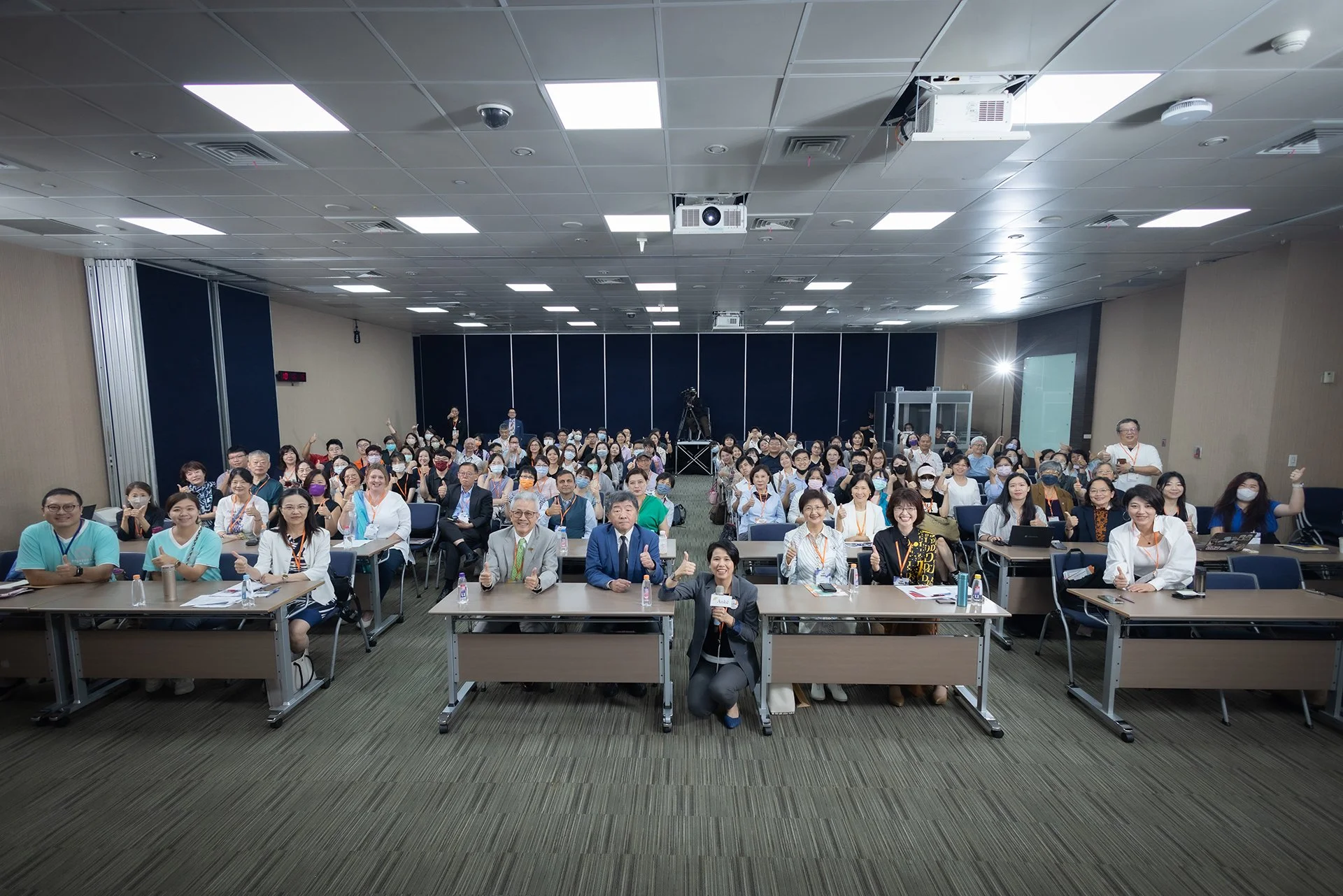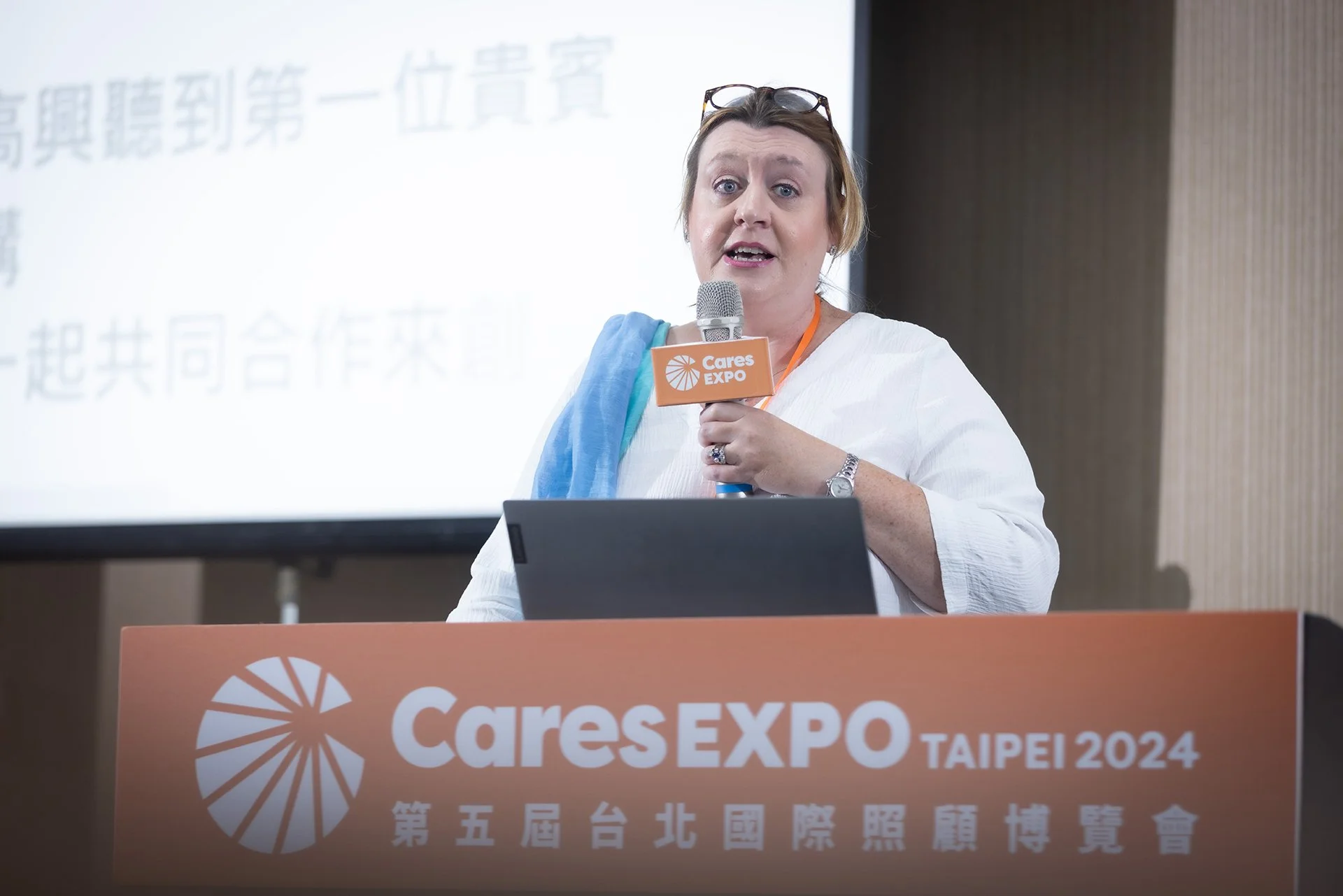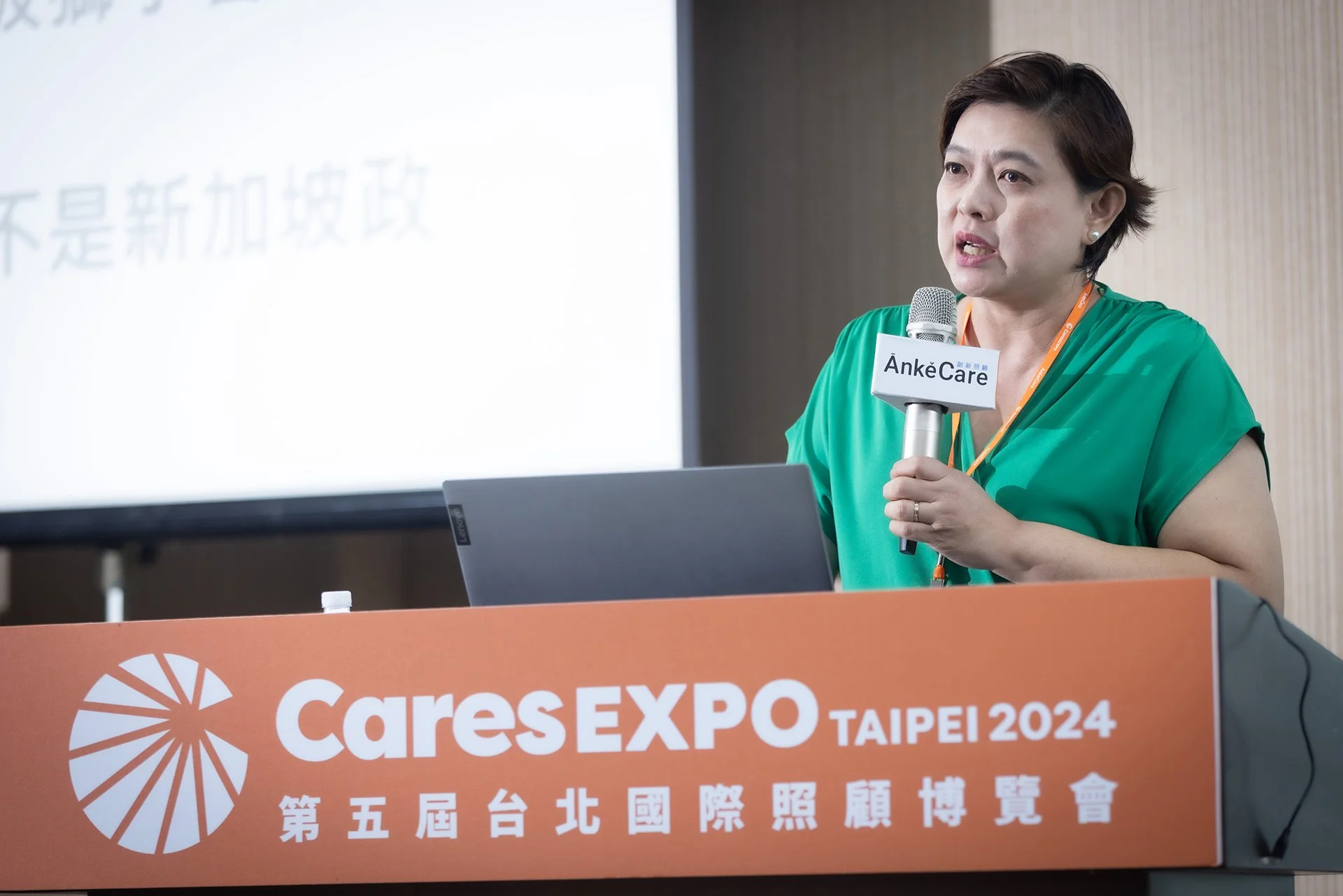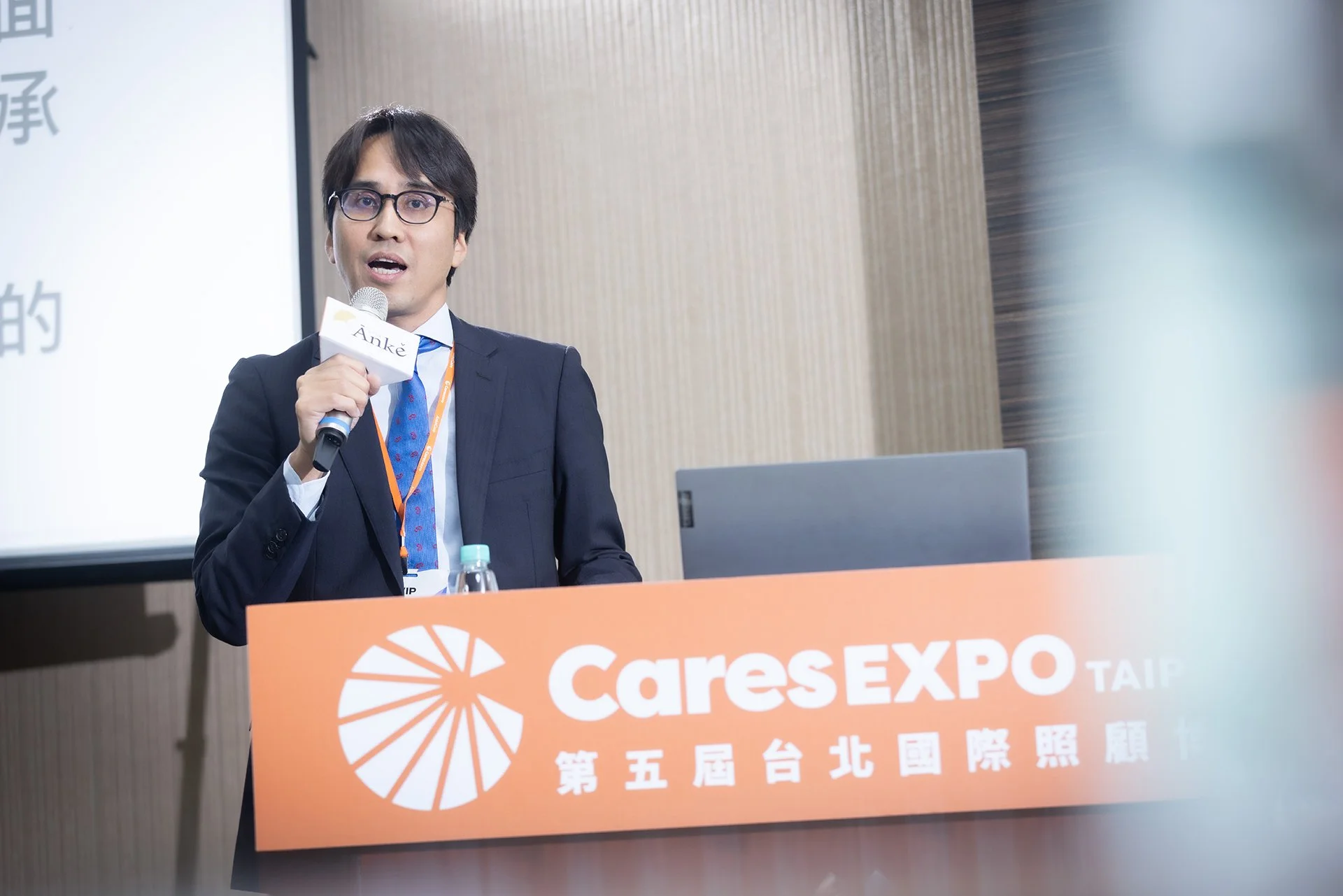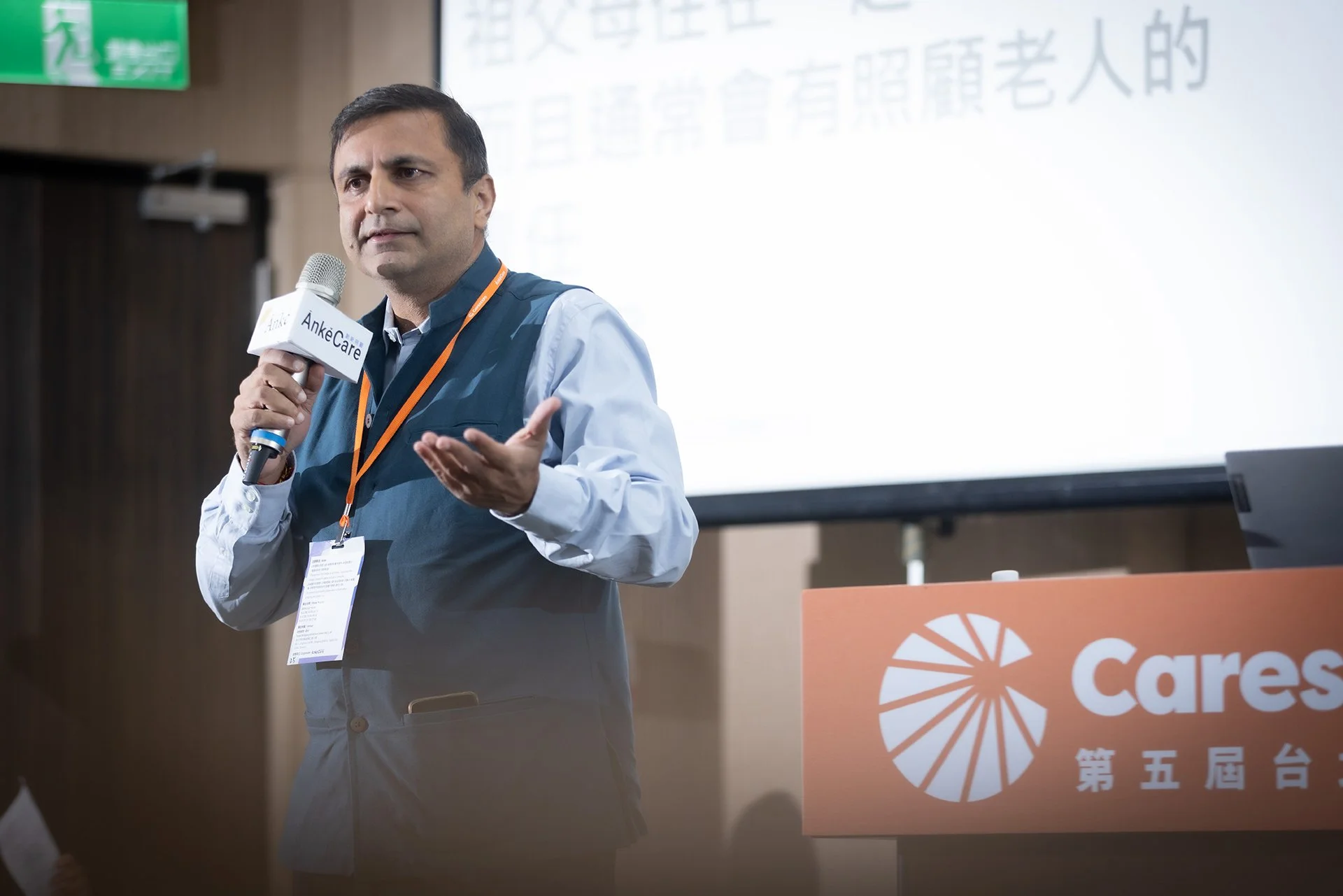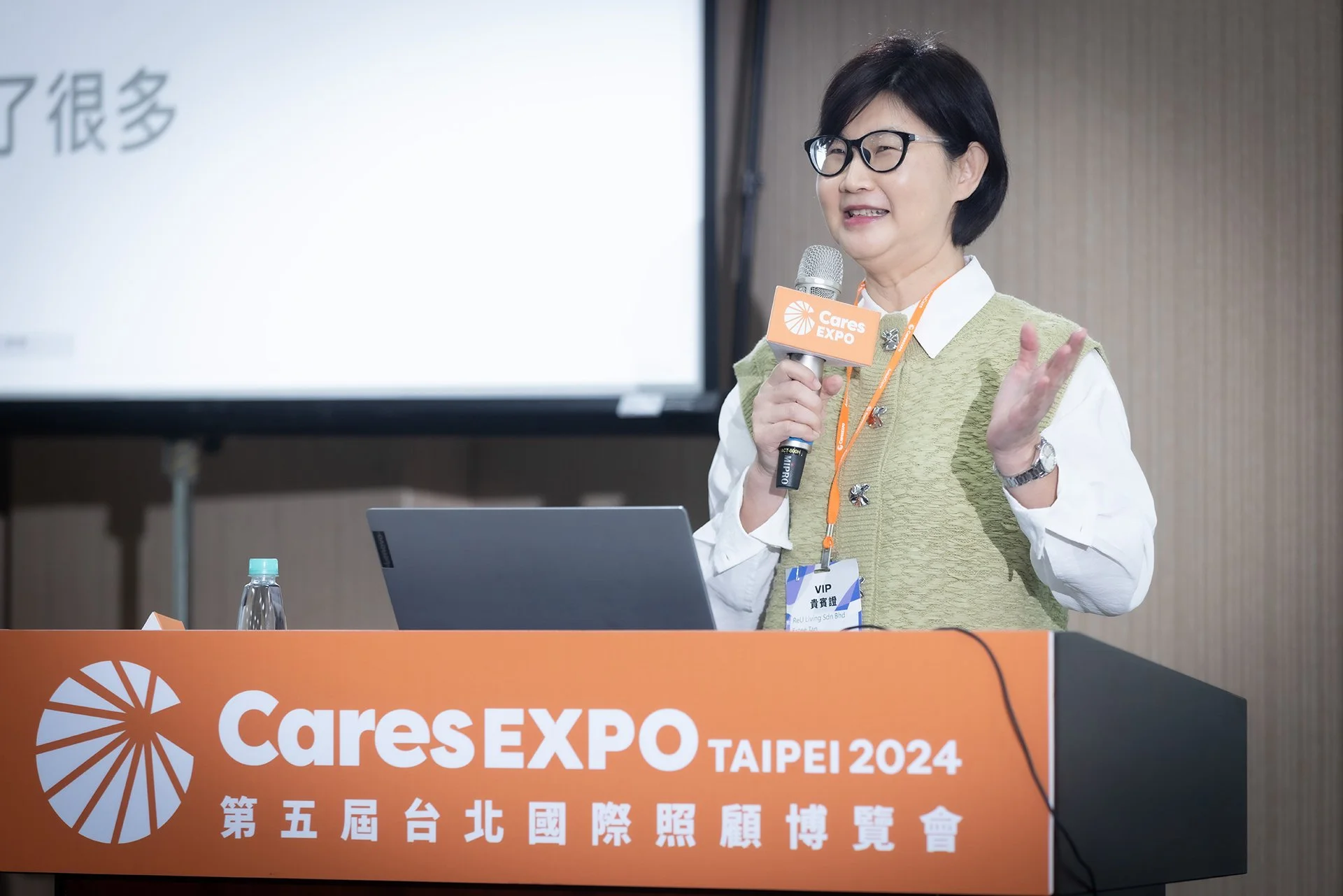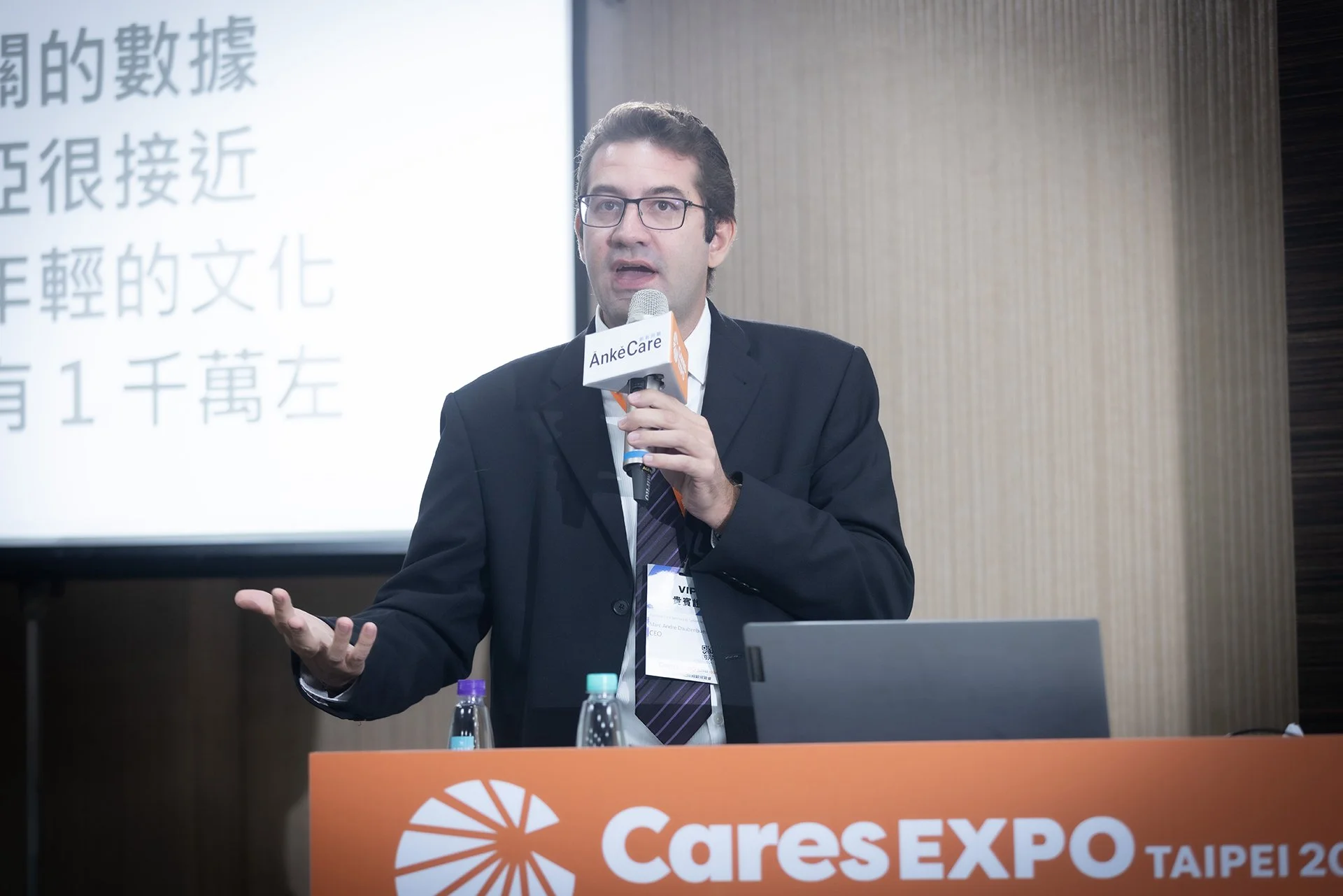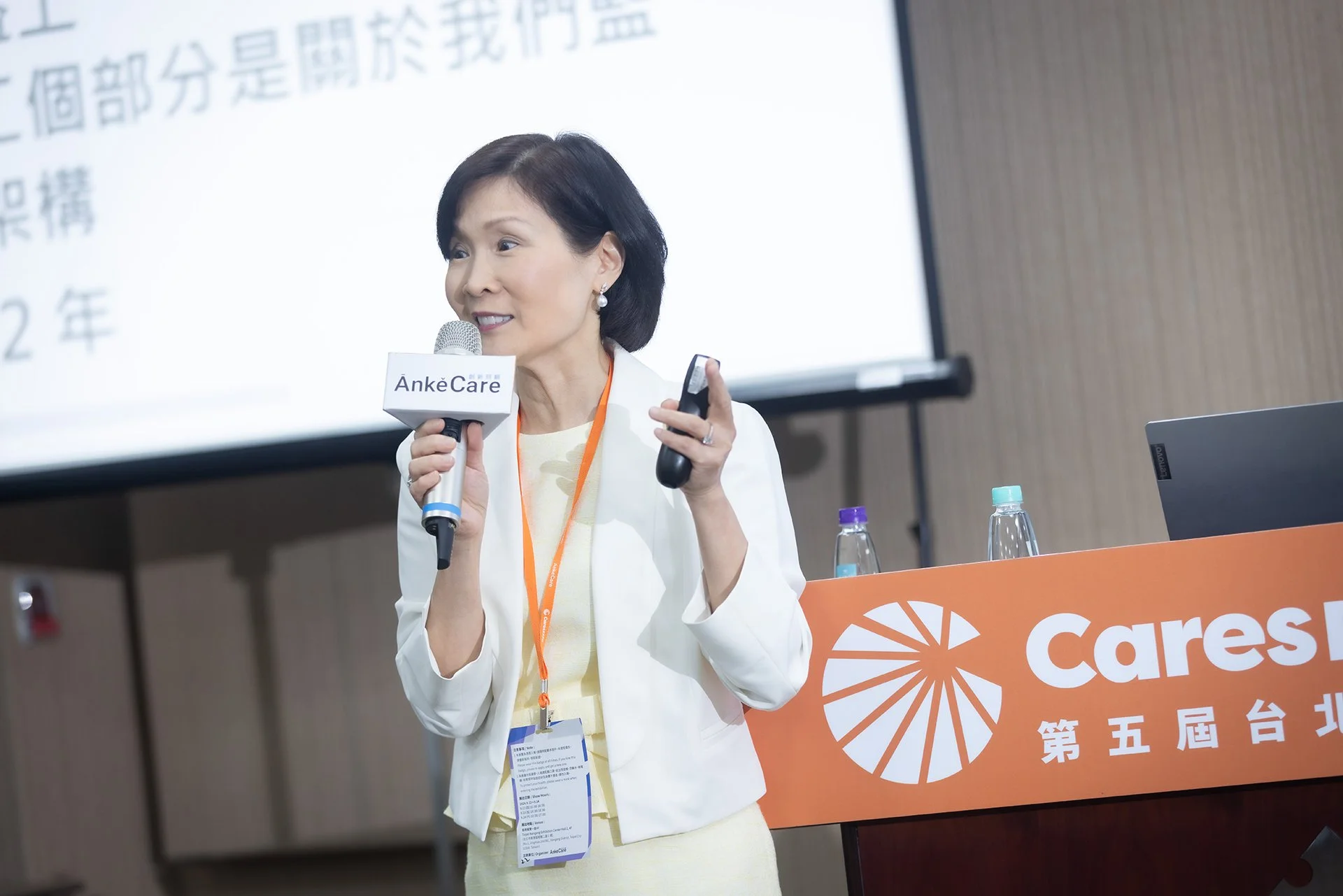Relive the Breakthroughs of Asia-Pacific Care Industry Forum (ACIF) 2024
ACIF 2024 brought together global leaders to share innovations, best practices, and future visions that are redefining care across the Asia-Pacific region. (Source: Anke Media Corp.)
On September 13, 2024, the Asia Pacific Care Industry Forum debuted at Cares Expo Taipei. Inaugurated by the Founder of Anke Media and Organizer of Cares Expo Taipei, Parson Lee, and Minister without Portfolio and former Taiwan's Minister of Health and Welfare, Chen Shih-Chung, the forum brought together key leaders in elder care to address the growing challenges posed by aging populations across the region. Through a combination of technology, innovation, and international collaboration, countries are developing unique strategies to improve the quality of life for seniors.
Taiwan — Hsi-Wen Wu, Ministry of Health and Welfare
Hsi-Wen Wu outlined Taiwan’s Long-Term Care 2.0 strategy, emphasizing aging in place, community-based, person-centered services, and preventive care to reduce years lived with disability. Wu highlighted concrete policy moves to strengthen local care networks, expand preventive programs, and prepare for an expected caregiver shortfall by integrating digital tools for monitoring and care coordination. The message was clear: policy + local community action + technology are needed together to keep seniors independent and reduce pressure on institutional care.
UK — Professor Lynne Corner (NICA & Voice)
Professor Lynne Corner described how NICA (National Innovation Centre for Ageing) and Voice work as a paired engine: NICA translates academic evidence into scalable products, while Voice brings lived experience and community feedback to validate and refine those solutions. Corner explained the “ageing intelligence” platform that combines survey and workshop data from Voice’s membership to de-risk product development and help firms find product-market fit. She stressed cross-national adaptability—how insights from Taiwan or Singapore can be localized for the UK—and highlighted Voice’s expanding presence in Asia as critical for global innovation exchange.
Read more: https://reurl.cc/4Nv3M2
Singapore — Karen Wee Siew Lin, Lions Befrienders Service Association (LBSA)
Karen Wee explained Singapore’s pivot to community hubs—Active Aging Centers (AACs)—and the practical tech stack LBSA uses to scale care: IM-OK for daily self-reporting, IM-Healthy kiosks for vitals checks, teleconsultations, and AIDEN delivery robots (in partnership with Delta) to relieve logistics burdens. LBSA’s scale-up from ~6,000 to ~14,000 seniors, accompanied by a staff increase of only around 20%, demonstrates how data-driven screening and localised service models can extend reach without proportional manpower growth. Funding mixes (government grants + private sponsorships) and AI screening for early cognitive risk were flagged as keys to sustainable, preventive community care.
Read more: https://reurl.cc/0Wlxbb
Japan — Mitsuru Sakoda, Sompo Care (GM, Head of Business Development & Head of Global Strategy Office)
Mitsuru Sakoda showed how Sompo Care deploys AI, sensors, and automation to reduce caregiver workload while preserving care quality—critical in Japan’s tight labor market. Sompo’s approach pairs sensor-based monitoring and analytics with targeted caregiver training to avoid deskilling and ensure technology amplifies, not replaces, human judgement. Sakoda stressed that tech adoption must be accompanied by workforce upskilling and culturally appropriate service models so seniors get safe, dignified, and timely care. (See ACIF coverage for Japan context and related interviews.)
India — Gaurav Agarwal, Samarth Life Management (Co-founder & COO)
Gaurav Agarwal walked through India’s demographic shift—153 million seniors—and Samarth’s “123 model” for independence, health, security and social engagement. Samarth operates in 100 cities with ~400 professionals (largely women), using a care-counselor model that matches seniors with nearby, trusted caregivers acting as “proxy daughters.” The model emphasizes flexible, local, relationship-based support (not full-time live-in care), government partnerships (including the national elder helpline), and scalable training to professionalize the caregiver workforce—essential steps to convert India’s informal family care traditions into a reliable ecosystem.
Read more: https://reurl.cc/GNLb6D
Malaysia — Estee Tan, ReU Living (COO)
Estee Tan presented ReU Living’s hybrid hospitality-plus-care model tailored to Malaysia’s multicultural preferences (where ~77% still prefer aging at home). By converting hotel-apartment stock into senior-friendly units with integrated assisted-living care, short-stay rehab, and culturally adapted services (including partnerships for traditional Chinese medicine), ReU blends comfort with clinical safeguards. ReU’s emphasis on social programming, clubhouse activities, and family-friendly operations aims to counter isolation while offering scalable, premium options for urban seniors in a market just starting to mature.
Read more: https://reurl.cc/A3LRvd
Philippines — Marc Andre Daubenbuechel, RainTree Care Services & Senior Residence (CEO & MD)
Marc Andre described RainTree’s deep focus on dementia care and culturally sensitive service for returning OFWs and Filipino families. RainTree prioritizes human-centred staffing (70 staff for 35 residents), higher compensation and staff housing to retain talent, and home-like environments with secure outdoor spaces—essential for dementia residents who need safe movement and sensory stimulation. With 45 rooms open and 96 more planned, RainTree is scaling while maintaining intensive staff ratios; Marc urged cultural-adaptation of international standards to reduce stigma and expand access to quality dementia services in the Philippines.
Read more: https://reurl.cc/x34EV5
Australia — Ada Chee Har Cheng, Australian Nursing Home Foundation (ANHF, CEO)
Ada Chee Har Cheng reviewed Australia’s sweeping aged-care reforms—new Aged Care Act, strengthened quality standards, and renewed emphasis on person-centred care—and how ANHF is responding operationally. Serving ~1,500 seniors and managing ~400 home care packages daily across nursing homes and seniors’ housing, ANHF is investing in staff training, customer experience systems, and engagement tech (robots, motion-sensor VR) to boost quality and reduce isolation. Cheng emphasized that with consumer-direct funding, customer engagement and culturally tailored services (especially for Chinese communities) are strategic levers for retention and quality improvement.
Read more: https://reurl.cc/bmanpd
Final takeaway
ACIF 2024 made it clear that the future of elder care in the Asia-Pacific region will be driven by hybrid models (combining community, technology, and hospitality), workforce innovation, culturally sensitive design, and cross-border knowledge exchange. From voice-led product testing (Voice/NICA) to robots that deliver meals, the thread is the same: technology and policy must be human-centred to scale quality care.
Read more: https://reurl.cc/yA4eGM
🚀 Connect with Global Leaders in Aging & Care Innovation!
Sourcingcares links international partners in aging care, long-term care, and health technology, fostering collaboration and driving solutions for a changing world. Our initiatives include Cares Expo Taipei, where the future of elder care takes shape!
🔗 Follow us for insights & opportunities:
📌 Facebook: sourcingcares
📌 LinkedIn: sourcingcares
📍 Explore more at Cares Expo Taipei!
Interview by Sourcingcares

